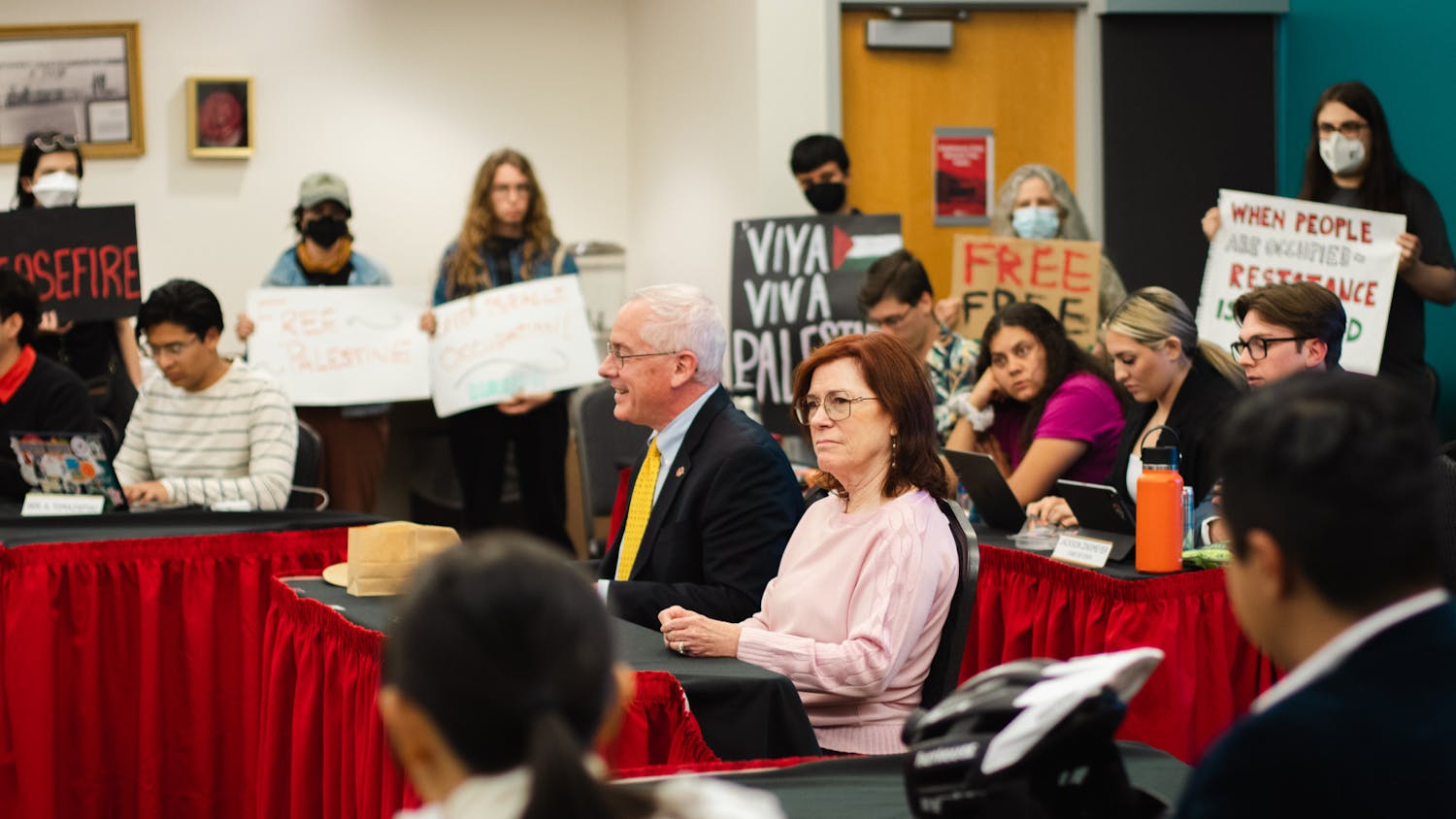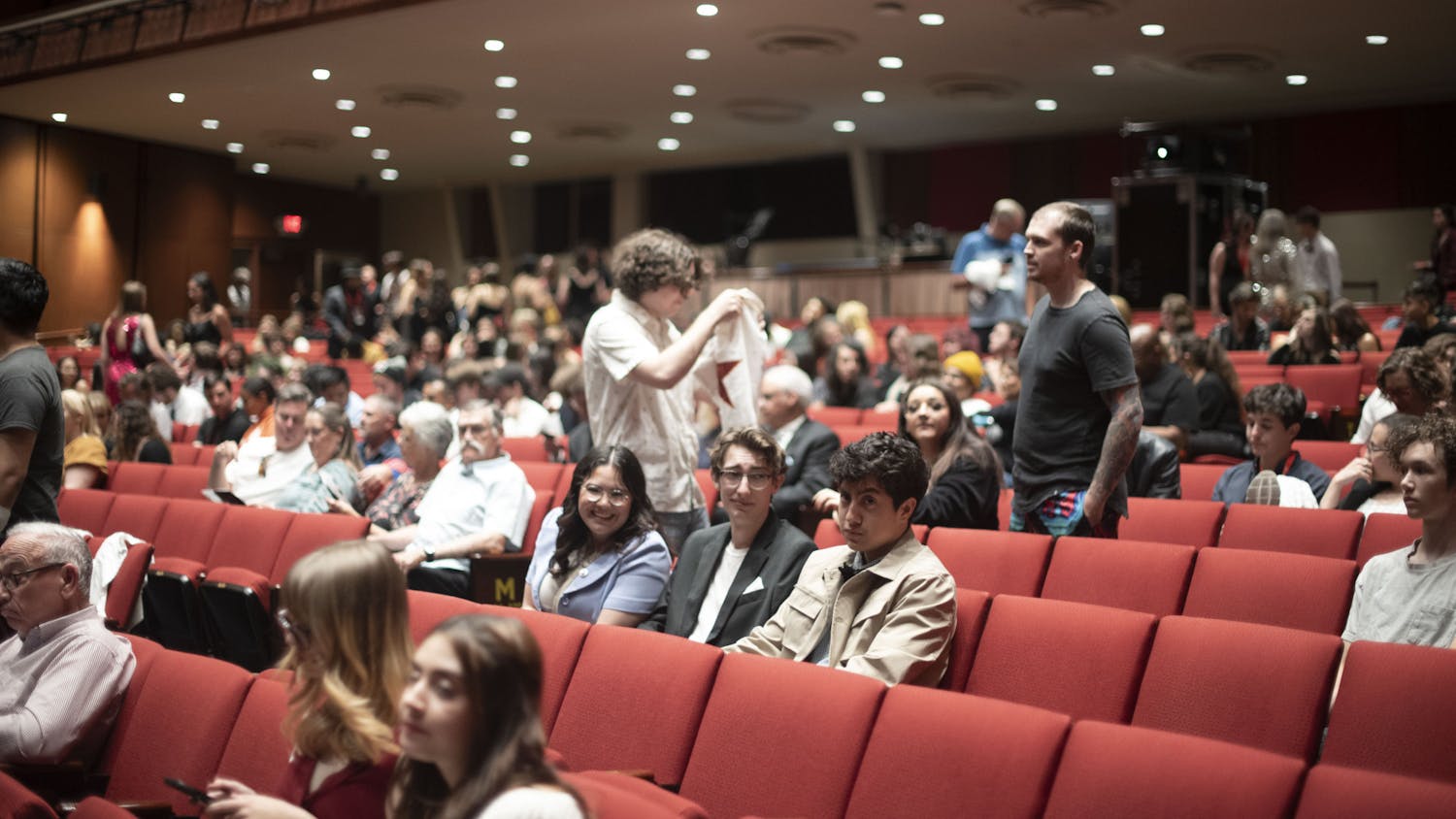news@dailylobo.com
@ChloeHenson5
The graduate student government made a case for re-blocking tuition on Thursday.
At a UNM Board of Regents’ Academic Student Affairs and Research Committee meeting, Matthew Rush, chief of staff of the Graduate and Professional Student Association, presented a recommendation to provide fixed tuition rates for students taking 12 credit hours or more.
Rush said students enrolled in graduate programs that charge differential tuition experienced a much larger increase in tuition last semester than students who paid non-differential tuition.
“We have found that, program-wise, there is a huge effect,” he said. “(Students enrolled in differential programs) tend to actually take larger (amounts of) credit hours.”
Differential tuition is an additional tuition that must be requested by programs or colleges to the provost and then approved by the Board of Regents, according to the UNM Bursar’s website. Students in programs with non-differential tuition are not charged that extra tuition.
While the number of students paying differential tuition is smaller than the number of students who are in non-differential programs, Rush said the current tuition model is putting a large burden on those students. He said there were about 5,000 students on the non-differential tuition model and 1,000 students who paid differential tuition.
Blocking tuition will also decrease the amount of revenue collected by the University, Rush said.
“I want to be very transparent,” he said. “The reality is, if we put this forward, that’s going to reduce the income by $400,000 for students from this semester alone.”
Rush presented several reasons why students feel the administration and the regents should consider a 12 credit hour block. One of the reasons was that many people involved in unblocking tuition did not fully understand what the effects would be, he said. The Board of Regents approved unblocking tuition during the 2013 spring semester.
“The implications of unblocking, I don’t think, were fully realized,” he said. “We’re trying to correct that right now. Not only the regents — the administration, the students didn’t really know what was going to happen, and as we’re getting into this semester we’re starting to feel some of those growing pains.”
But Terry Babbitt, a co-chair for the Tuition and Fee Policy Committee, said the people directly involved in the project did understand its implications.
Get content from The Daily Lobo delivered to your inbox
“The idea that the unblocking was not understood is not true,” he said. “I don’t know that it was understood by everyone, but it was certainly understood by the people modeling it and proposing it.”
According to the minutes from a Board of Regents meeting in April, Babbitt helped present the proposal for unblocking tuition to the regents.
Rush said the Provost’s office proposed to block tuition for students taking 14 credit hours or more, but he said the proposal would still put an increase on students taking between 12 to 14 credit hours.
The Tuition and Fee Policy Committee voted in favor of the 14-hour block proposal about two weeks ago, Babbitt said. He said the information for both proposals would be forwarded to the Strategic Budget Leadership Team for consideration.
Babbitt said one problem with blocking tuition is that most of the students impacted by the block tuition model are involved in five differential programs: physician assistant, occupational therapy, physical therapy, Anderson School of Management and architecture and planning. He said those professional programs need to take into account different factors that could affect tuition.
“Of those five programs, three of them don’t want to go back to block tuition,” he said. “The students might, but the programs don’t because they want to set their tuition at a market rate, a rate that mirrors what their students make in the economy.”
While he agreed with the information presented by the proposals, Babbitt said he didn’t think re-blocking tuition offered a long-term solution to the graduate students.
“Overall, I don’t have a problem with either of the pieces of information shared about a 12-hour block or 14-hour block,” he said. “Long-term, I don’t think that either is the answer for those five programs that require students to take 13 or more hours.”
Student Regent Heidi Overton said she didn’t remember being informed about the impact unblocking tuition would have on certain students.
“When we voted on unblocking the tuition, I don’t recall it being highlighted anywhere that certain graduate students would be affected with a 30 percent tuition increase,” she said. “That might have been well-known to some. I don’t feel like it was well-known to everyone.”
Overton said she doesn’t know what the solution can be, but urged the regents to consider all of the proposals.
“I don’t know what the right answer is, but I’m glad that we’re going to be willing to think about it this year,” she said.





